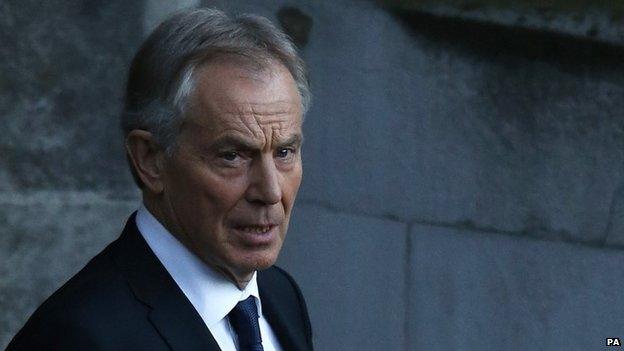Tony Blair takes on anti-extremism and anti-Semitism role
- Published
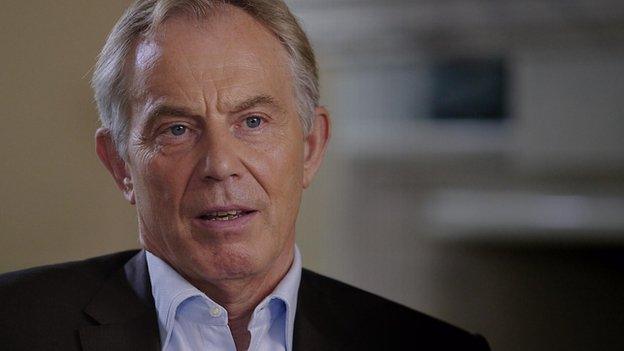
Tony Blair is to become the chairman of an organisation that combats anti-Semitism and racism in Europe.
The former UK prime minister will join the European Council on Tolerance and Reconciliation, which has campaigned for tougher laws on extremism.
Mr Blair is standing down this month as the Middle East envoy representing the US, Russia, the UN and the EU.
He will not be paid in his new role, but his faith foundation will reportedly receive an annual donation.
The ECTR describes itself as an "opinion-making and advisory body".
It has called on European countries to bring in legislation creating clearer definitions of racism and anti-Semitism, boost educational programmes and make Holocaust denial a criminal offence.
The organisation also wants governments to provide security at synagogues and Jewish schools.
'Softest targets'
Writing in the Times, external (behind a paywall), Mr Blair and Moshe Kantor, a Russian-born businessman who co-founded the ECTR in 2008, said Europe was facing "dangerous times".
They said "economic decline fuels instability", noting that the only three times in the past 100 years when the annual GDP growth in Europe went below 1% was just before World War One and World War Two and last year.
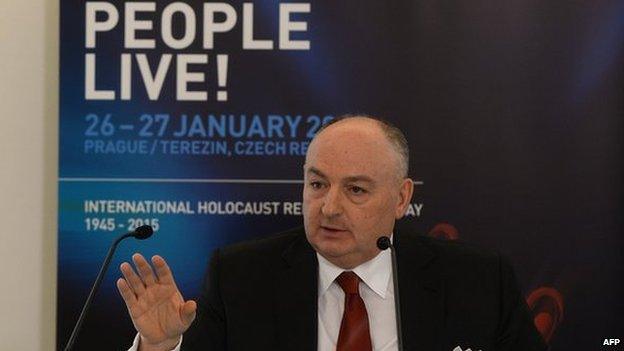
Russian-born businessman Moshe Kantor co-founded the ECTR in 2008
Mr Blair and Mr Kantor, who is also President of the European Jewish Congress, highlighted a report on global anti-Semitic incidents by the Kantor Centre at Tel Aviv University, which found last year was one of the worst years in the past decade.
"Prejudice and racism often start with the softest targets, be it Jews or others, but it never ends there," they wrote.
"Anti-Semitism is not a Jewish problem, but one infecting the whole of society and needs to be tackled for the sake of us all.
"It is our firm belief that it is not religion or faith per se that causes or foments conflict," they added.
"It is the abuse of religion which then becomes a mask behind which those bent on death and destruction all too often hide."
'Good friend'
They cited the Northern Ireland peace process, which Mr Blair was involved in, as a "prime example" of where lessons can be learnt.
"Globalisation is pushing us closer together so the effects of racism and discrimination increasingly undermine the fabric of society... states, international organisations and other actors must join together to tackle hate and intolerance."
The Board of Deputies of British Jews welcomed Mr Blair's appointment.
Senior Vice President Richard Verber said Mr Blair has "proved himself a good friend of the Jewish community" and was "well-placed to bring his experience to the fight against anti-Semitism and intolerance".
The National Secular Society said the proposal to make Holocaust denial a criminal offence would "undermine the West's defence of freedom of speech".
"Politicians have already called for the outlawing of Islamophobia, playing into the hands of those intent on closing down honest debate about and within Islam," the society's executive director Keith Porteous Wood said.
He added that imposing mandatory security at all synagogues and Jewish schools was "disproportionate".
Mr Blair, who was UK prime minister from 1997 to 2007, is taking over from former Polish president Aleksander Kwasniewski as chairman of the ECTR.
He will head a board that includes former Spanish Prime Minister Jose Maria Aznar and ex-Swedish PM Goran Persson.
His decision to quit as Middle East peace envoy was announced in May.
Sources said, however, that Mr Blair would "remain active" in the region in an informal role and was "fully committed to assisting the international community in its work with Israel and the Palestinians to bring about progress on the two-state solution".
- Published27 May 2015
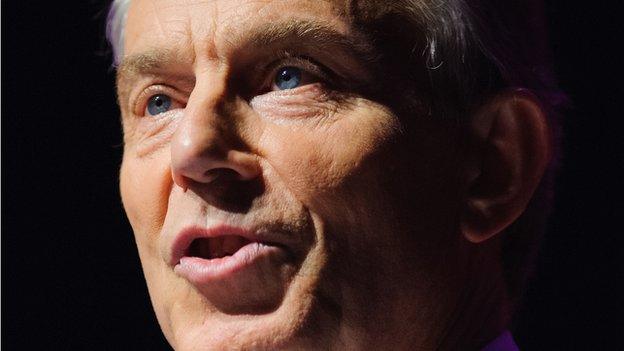
- Published7 April 2015
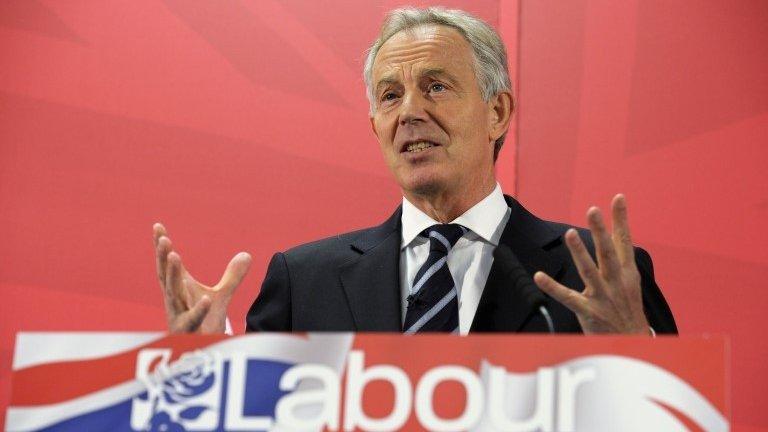
- Published21 January 2015
